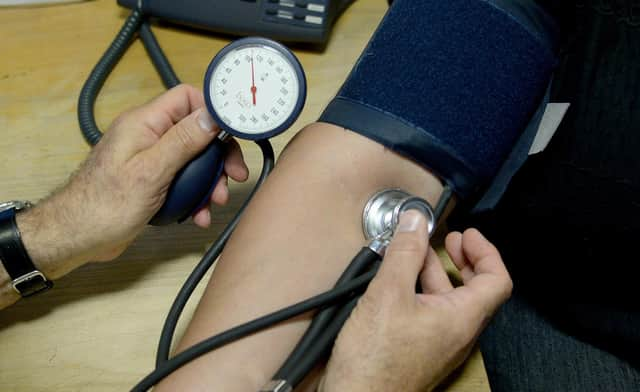Owen Polley: The GP system in Northern Ireland is unworkable, and will end up costing lives


Last week, I needed to book an appointment for the treatment room to get a wound checked, following a procedure to remove some metalwork from my wrist. I spent a day and a half trying in vain to get through on the telephone, before deciding to visit the surgery in person. Although I joined a long queue of people checking into appointments, picking up prescriptions and, in one case, making a complaint, I was eventually successful - but what a palaver!
Prior to Christmas, my family had an even more frustrating experience involving our son, who came down with scarlet fever.
Advertisement
Hide AdAdvertisement
Hide AdThe effects of this infection can be relieved quickly by antibiotics. The NHS advises that a child can be back at school twenty-four hours after they start their course of drugs. Otherwise, children may get high temperatures, which tend to cause lethargy, confusion and other worrying symptoms. A small number of cases even have severe consequences, as we saw during the recent outbreak.
To avoid this, my wife tried to contact the surgery before 9 o’clock in the morning, aiming to speak to a GP about our son and potentially get a prescription. About 10 o’clock, after around one hundred failed attempts to get through, I joined the effort.
A further 45 minutes and numerous attempts later, we finally got a line to the surgery, at which point the receptionist immediately put us on hold for another 15 minutes.
That was not the end of the saga. To get a consultation, you must provide the receptionist with details of your complaint and then the doctor eventually rings back at some unspecified point in the day. In our case, this happened at almost 5pm. An entire working day was spent trying to get a simple prescription, so that my son could start to feel better.
Advertisement
Hide AdAdvertisement
Hide AdAs it happened, when my wife finally spoke to the doctor, he was very helpful. He faxed the script through to a pharmacy that was open late, adding a prescription for our four year old, in case he caught the bug and started to show symptoms later.
So I tell these stories, not to attack the services GPs provide, or to cast doubt on their dedication to their patients. I understand that they’re overwhelmed and they’re trying their best. But, to say the least, this system, if it is replicated across the province, is unworkable, unsustainable and will end up costing lives.
Many people are simply not going to spend hours trying to get through to speak to a doctor. And it probably won’t be the ‘worried well’ who are easily deterred, but those who really need medical help. There are plenty of people, particularly men, who don’t need much of an excuse to put off seeing their GP.
Then there are all the routine appointments, which can seem less than urgent, but where problems are frequently discovered. If you got a note on a prescription asking you to schedule an annual blood pressure test, for example, would you be put off by the fact that it might take most of the morning to arrange? I know I would.
Advertisement
Hide AdAdvertisement
Hide AdThere are so many other potential examples where effectively dissuading people from calling the doctor could cause huge difficulties. Missed cancer diagnoses. Parents who delay taking sick children into A & E because they want to speak to their doctor first. Patients not getting the appropriate medication in a timely way.
And the eventual repercussions are likely to include more sick people, more complicated patients for the NHS to deal with when they finally get treatment and longer waiting lists. It’s a vicious circle that means our health system is under ever more pressure, struggling to meet demand with an increasing number of problems building up.
These aren’t easy issues to resolve either. The idea of triaging our medical complaints over the phone became permanently entrenched during the Covid lockdowns. Many of us stayed away from GPs’ surgeries and A & Es during that time, creating pent up demand that was released when the restrictions were relaxed.
Clearly, huge numbers of people are still trying to contact their doctor every day.
Advertisement
Hide AdAdvertisement
Hide AdAt the same time, it can’t be impossible for GP practices to install phone systems that accept greater volumes of calls, even if that means putting callers in a lengthy queue while they wait to speak to someone. It is not acceptable to routinely expect worried or sick people to endure hours of engaged tones, disconnected lines and disembodied voices intoning ‘it has not been possible to connect your call,’ just to get through to a receptionist.
There are other public services, like HM Revenue and Customs, that deal with enormous volumes of calls. Contacting them may be a long and frustrating process, but at least you can get connected and wait it out, even if that means listening to tinny muzak all morning over speaker-phone.
We know that Northern Ireland’s NHS has missed out on decades of reforms, thanks to the inaction of devolved ministers. One of the themes that kept recurring in the various reports that remained unimplemented over the years, was the need to improve primary care and look after people in the community.
If that work had been done, maybe contacting your GP would now be a less frustrating, time-consuming experience.